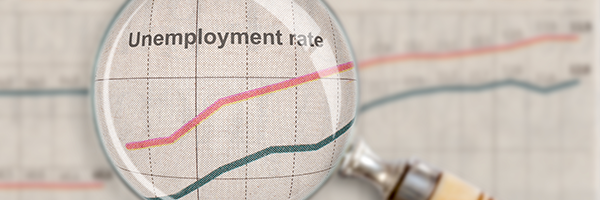DIS

May 13, 2021 | Daily JAM, DIS, Top 50 Stocks |
Disney (DIS) shares tumbled by 3.64% in after-hours trading after the company reported fiscal second quarter numbers that beat Wall Street estimates on earnings but missed projections on revenue and on subscribers to the company’s Disney+ streaming service. Adjusted earnings per share were 79 cents versus a projected 32 cents a share. (For the second quarter of 2020 the company reported earnings of $1.53 a share.) Revenue of $15.62 billion for the quarter was a bit shy of Wall Street projections of $15,85 billion. The big miss came in subscription growth for the company’s paid streaming service. Disney+ topped 100 million subscribers for the first time–just 16 months after the late 2019 launch of the service. (Competitor and streaming leading Netflix had 208 million global subscribers at the end of its most recently reported quarter.) The stock dropped on the news, however, since analysts had been looking for 110.3 million subscribers by the end of the quarter.

April 20, 2021 | Daily JAM, DIS, Morning Briefing |
This won’t help an already nervous market one bit. Today, April 20, after the close Netflix (NFLX) reported first-quarter subscriber growth way below projections. The stock was down 1.21% in after-hours trading as of 4:30 p.m. New York time.

April 17, 2021 | Daily JAM, DIS, Friday Trick or Trend |
Can you say “Pent up demand?” Theme parks in California began reopening this month of the first time in more than a year. Restrictions limit visitors to state residents and the parks are allowed to operate at just 25% of capacity. And they’re selling out.

March 24, 2021 | Daily JAM, DIS, Top 50 Stocks |
A couple of weeks before Christmas, Disney (DIS) decided that the pandemic coast would be clear enough by May for it to send Black Widow, the next Marvel universe potential blockbuster–to movie theaters in May. Not so far, the company has now decided. With rates of infection rising again across the country, Disney has decided to push the theatrical release of Black Widow, starring Scarlett Johansson, to July.

February 12, 2021 | Daily JAM, DIS, Stock Alerts, Top 50 Stocks, You Might Have Missed |
Disney shares drop 1.7% today as traders take profits after yesterday’s beat on fourth quarter earnings and revenue

January 28, 2021 | AG, Daily JAM, DIS, FCX, FQVLF, GDX, GOLD, Jubak Picks, MGM, Morning Briefing, SCCO, Top 50 Stocks |
U.S. GDP growth slowed in the fourth quarter, gaining just 1% from the third quarter. For the full year the U.S. economy contracted by 3.5%. That makes 2020 the first time that the economy has contracted for a full year since 2009 and the Great Recession. At the bottom of that recession that economy contracted by 2.5%. 2020 is also the worst year for economic growth since 1946 when the economy shrank by 11.6% as the country demobilized after World War II. Consumer spending slowed in all 15 categories tracked by the Bureau of Economic Analysis. The sectors that had powered the recovery in the third quarter–restaurants and hotels, for instance–reversed. The growth in spending on cars and health car also slowed from the acceleration in the third quarter. So why is this good news as far as the stock market is concerned?

July 13, 2020 | Daily JAM, DIS |
On Sunday, Florida reported the highest single-day total of new coronavirus cases by any state since the start of the pandemic. The 15,299 new cases surpassed the previous high for any state on a single day of 12,274 recorded in New York on April 4. The record comes...

June 29, 2020 | AAPL, CRUS, Daily JAM, DIS, NXPI, PANW, SHAK, Short Term, TWLO |
I'd like to see this pattern season for a few more days--until next week I'd say--but I think I see a promising trading strategy for the second quarter earnings season that begins, in my mind at least, with JPMorgan Chase (JPM) before the market open on Tuesday, July...

May 20, 2020 | Daily JAM, DIS |
Disney (DIS) re-opened part of its Florida park complex today--actually just the admission-free Disney Springs area of restaurants, shops and entertainment venues today. The reaction on line hasn't been all Bippity-Boppity- Boo! “Not going till they remove these...

May 5, 2020 | Daily JAM, DIS, Stock Alerts |
How did Wall Street analysts get Disney (DIS) earnings today so wrong? Analysts had been projecting earnings of 86 cents a share. The company reported earnings of just 60 cents for the company's second quarter. The bigger-than-Disney takeaway here is "Wonder if it...

April 8, 2020 | Daily JAM, DIS, Stock Alerts |
You know that Disney (DIS) is really serious about the likelihood of continued social distancing measures disrupting movie going for months when it delays the release date of Black Widow, once intended as the tentpole of its summer schedule. Black Widow has been...

April 2, 2020 | Daily JAM, DIS, Stock Alerts |
Gugenheim analyst Michael Morris issued a deeply pessimistic call on Walt Disney (DIS) shares on Thursday, April 2. He's still more positive on the stock than I am in the next six months or so. While I continue to hold Disney shares in my long-term 50 Stocks...









